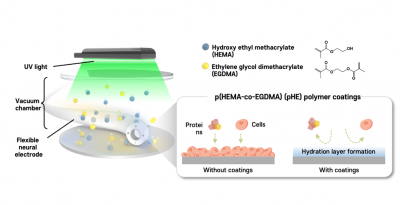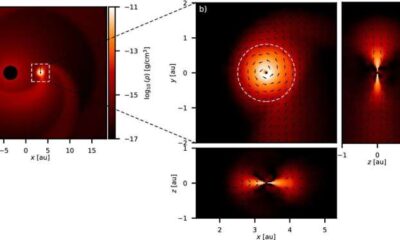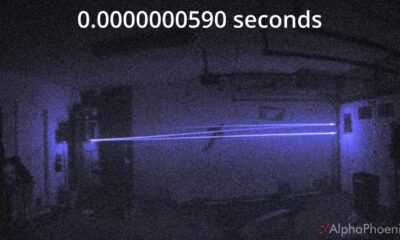Top Stories
Breakthrough Electrode Coating Triples Brain Signal Recording Time

BREAKING: A revolutionary new coating technology developed by a research team led by Dr. Hyejeong Seong at the Korea Institute of Science and Technology (KIST) has just been announced, extending the lifespan of implanted electrodes for brain signal recording from 1 month to over 3 months. This significant advancement was achieved in collaboration with Prof. Seongjun Park at Seoul National University.
This breakthrough is crucial for the future of neurotechnology, allowing for longer and more reliable brain signal monitoring. The implications for patients with neurological disorders, as well as for research in brain-machine interfaces, are profound. As the demand for precise and extended brain monitoring grows, this development addresses a critical gap in existing technologies.
The new coating allows electrodes to maintain optimal performance for significantly longer periods, which could lead to better data collection and enhanced treatment options for conditions such as epilepsy or paralysis. Currently, traditional electrodes require replacement every month, posing risks and complications for patients. The enhanced longevity of over 3 months not only reduces the need for invasive procedures but also improves patient comfort and safety.
KIST’s President, Sang-Rok Oh, emphasized the importance of this innovation, stating, “This advancement represents a significant step forward in our ability to understand and interact with the brain. We anticipate that it will pave the way for new therapies and technologies.”
The research team’s findings are set to be published in leading scientific journals, further solidifying South Korea’s position at the forefront of neurotechnology. As this technology begins to roll out, medical professionals and researchers are keenly watching for its application in clinical settings.
Looking ahead, the implications of this advancement are substantial. Experts predict that the ability to record brain signals for extended periods will not only refine existing treatments but also enable groundbreaking research into brain functionality and disorders.
Stay tuned for more updates as this story develops and as the scientific community begins to explore the full potential of this innovative technology.
-

 Science2 months ago
Science2 months agoOhio State Study Uncovers Brain Connectivity and Function Links
-

 Politics2 months ago
Politics2 months agoHamas Chief Stresses Disarmament Tied to Occupation’s End
-

 Science1 month ago
Science1 month agoUniversity of Hawaiʻi Joins $25.6M AI Project for Disaster Monitoring
-

 Science1 month ago
Science1 month agoALMA Discovers Companion Orbiting Giant Star π 1 Gruis
-

 Entertainment2 months ago
Entertainment2 months agoMegan Thee Stallion Exposes Alleged Online Attack by Bots
-

 Science2 months ago
Science2 months agoResearchers Challenge 200-Year-Old Physics Principle with Atomic Engines
-

 Entertainment2 months ago
Entertainment2 months agoPaloma Elsesser Shines at LA Event with Iconic Slicked-Back Bun
-

 World2 months ago
World2 months agoFDA Unveils Plan to Cut Drug Prices and Boost Biosimilars
-

 Science2 months ago
Science2 months agoInnovator Captures Light at 2 Billion Frames Per Second
-

 Business2 months ago
Business2 months agoMotley Fool Wealth Management Reduces Medtronic Holdings by 14.7%
-

 Top Stories2 months ago
Top Stories2 months agoFederal Agents Detain Driver in Addison; Protests Erupt Immediately
-

 Entertainment2 months ago
Entertainment2 months agoBeloved Artist and Community Leader Gloria Rosencrants Passes Away









